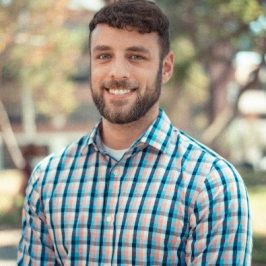
Speaker:
Affiliation:
CEE 200: Environmental and Water Resources Engineering Seminar
Can Mainstream Anaerobic Treatment Reduce Antibiotic Resistance Dissemination in the Environment?
Dr. Adam L. Smith
Astani Department of Civil and Environmental Engineering, University of Southern California
Abstract: Mainstream anaerobic treatment technologies such as anaerobic membrane bioreactors (AnMBRs) are emerging as one option to recover energy during low-strength domestic wastewater treatment. AnMBRs generate methane-rich biogas, a renewable energy source, directly from wastewater while eliminating energy requirements for aeration and greatly reducing sludge handling. However, AnMBR technology is still in development (e.g., bench- and pilot-scale systems to date for domestic wastewater applications) and widespread implementation requires demonstration of net energy recovery. Novel strategies are needed that improve the energy balance by increasing energy recovery and minimizing membrane fouling control energy demand. We must also broaden our objectives beyond the energy narrative and evaluate how mainstream anaerobic treatment influences trace contaminant fate and antibiotic resistance. This presentation will focus on the potential role AnMBR technology could play in reducing the spread of antibiotic resistance in the environment. Antibiotic resistance is a grave health concern exacerbated by our reliance on microbial processes for wastewater management. Mainstream anaerobic treatment is potentially beneficial due to the lower biomass yields relative to aerobic processes, significantly lessening the largest mass flow of resistance during conventional treatment. However, little is known about horizontal gene transfer rates during mainstream anaerobic treatment, which are likely influenced by the long solids retention times. Our research is the first to evaluate antibiotic resistance profiles in the biomass and effluent of AnMBRs as a function of influent antibiotic concentration serving as a selective pressure. The presentation will also discuss how membrane separation influences effluent extracellular and intracellular antibiotic resistance gene concentrations, and how antibiotic loading affects microbial community structure.
Biography: Dr. Adam L. Smith is an assistant professor in the Astani Department of Civil and Environmental Engineering at the University of Southern California. He received his M.S.E. and Ph.D. from the University of Michigan in Environmental Engineering in 2011 and 2014, respectively. He received his B.S. in Civil Engineering from Marquette University in 2009. The Smith Research Group focuses on biotechnologies for resource recovery from waste streams.
Tuesday, April 16, 1 PM to 2 PM, 5249 Boelter Hall
Date/Time:
Date(s) - Apr 16, 2019
1:00 pm - 2:00 pm
Location:
Boelter Hall 5249
UCLA, Boelter Hall 5249 Los Angeles CA 90095
